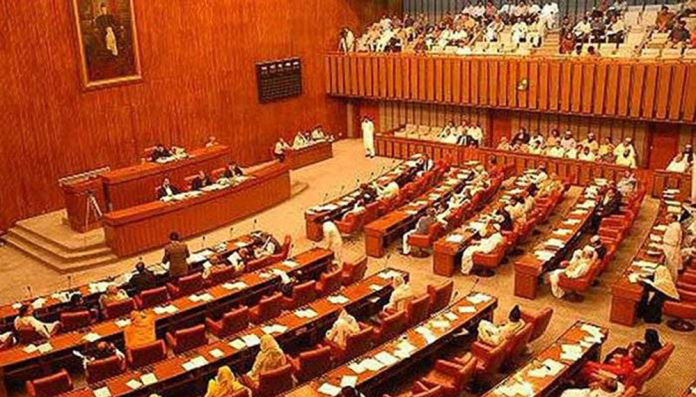
The Senate Standing Committee on Finance has raised significant objections to proposed tax measures in the upcoming fiscal year’s budget, citing concerns over their potential contribution to inflation. Committee Chairman Senator Saleem Mandviwalla highlighted these issues during a recent meeting, emphasizing that the proposed taxes, particularly on essential food items like packaged and baby milk, could have adverse effects. The committee firmly rejected the imposition of taxes on locally produced baby food, infant nutrition, and packaged milk.
Mandviwalla indicated that the committee will present its recommendations to the Senate on Monday. He underscored predictions that the government’s proposed tax adjustments could escalate overall inflation by approximately 10% in the next fiscal year.
One of the committee’s key objections was against the proposal to levy an 18% sales tax on baby milk. Members voiced strong reservations, especially in a country where 40% of children suffer from stunting. Anusha Rehman from the Pakistan Muslim League-Nawaz (PML-N) criticized the tax increase on milk as insensitive, highlighting the lack of prior consultation on such a crucial matter. Sherry Rehman from the Pakistan People’s Party (PPP) supported this stance, as reported by Business Recorder.
In contrast, Finance Minister Muhammad Aurangzeb, during his budget speech, emphasized the critical importance of nutrition in the early stages of child development and the necessity to combat stunting. However, industry experts have voiced opposition to the proposed 18% GST on locally produced infant formula, baby food, and child nutrition milk powders. They argue that such a tax hike could undermine the government’s objectives by making these essential products less affordable. Local alternatives are approximately 50% cheaper than imported equivalents, ensuring accessibility to a broader population without straining foreign exchange reserves. Moreover, these products play a crucial role in supporting local dairy farmers, contributing significantly to the purchase of 300 million liters of milk annually.
The debate underscores a delicate balance between fiscal policy objectives and socio-economic considerations, particularly amid a challenging inflationary environment.